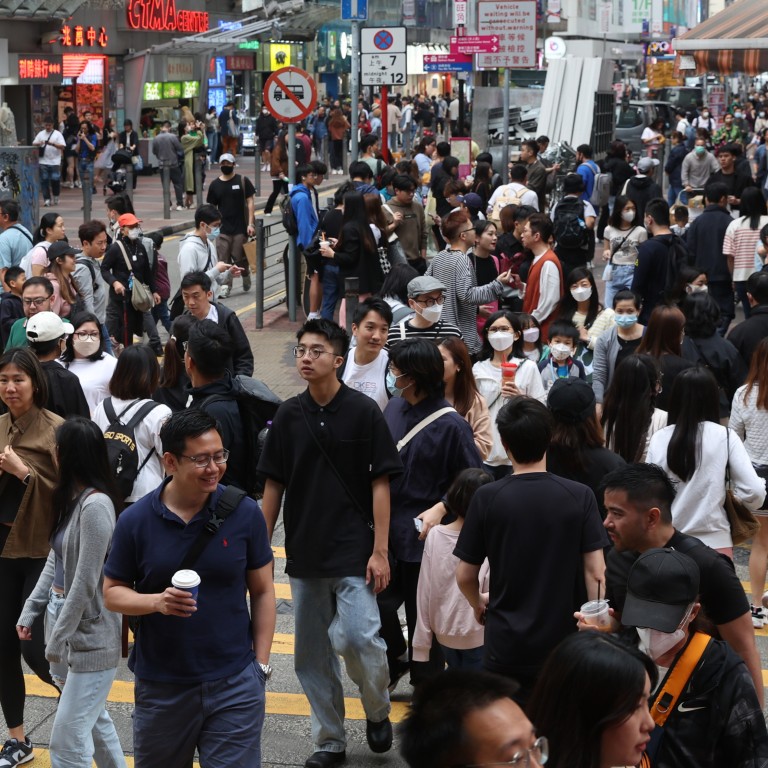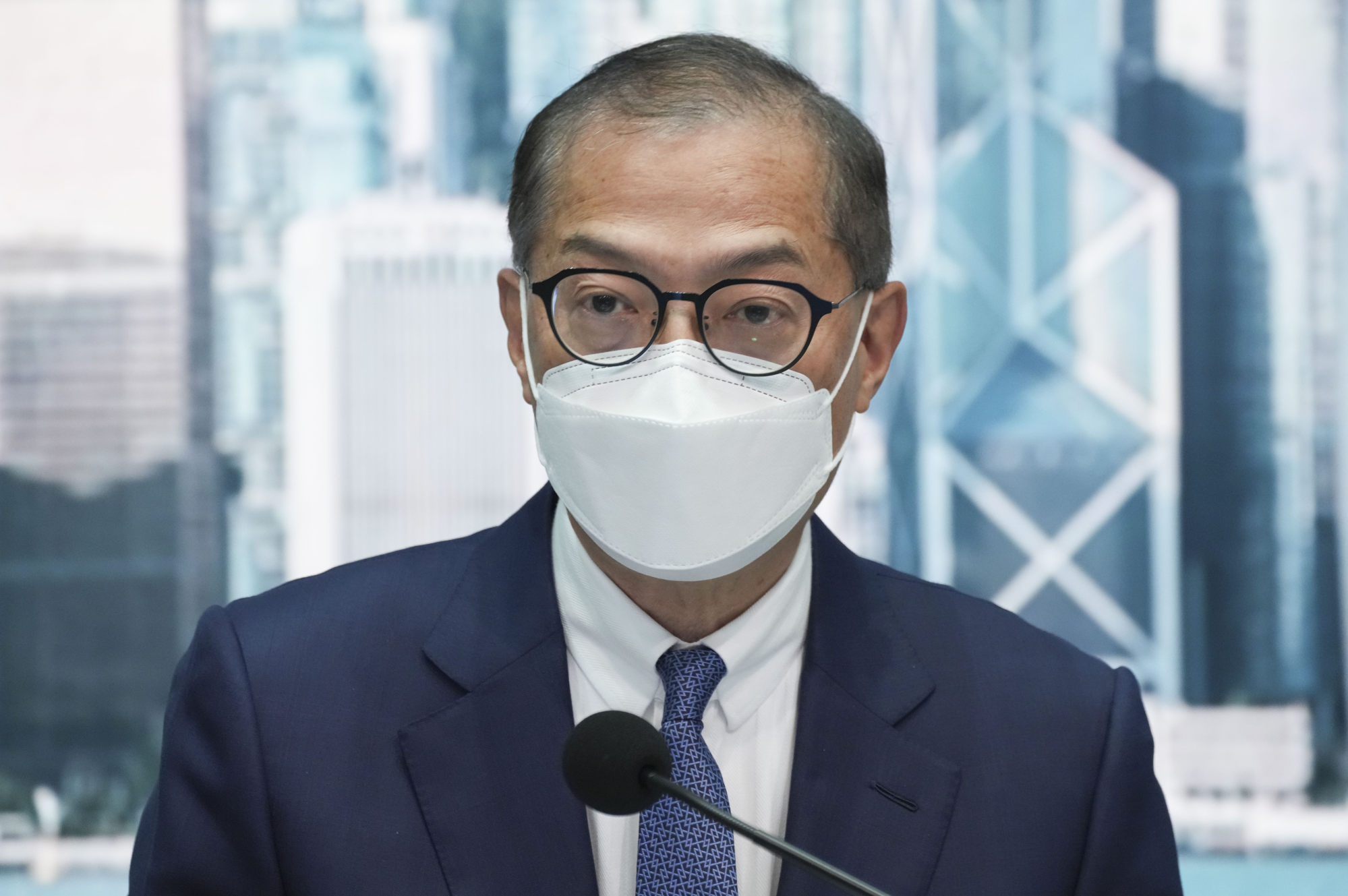
Coronavirus Hong Kong: daily caseloads hit 10,000, but health chief says outbreak manageable amid high vaccination rate, lower Covid severity
- Secretary for Health Lo Chung-mau warns residents to stay vigilant however as ‘there will always be another epidemic’
- Hospital Authority restarts 24-hour command centre operations to monitor situation at facilities across network
Despite the surge, Secretary for Health Lo Chung-mau expressed confidence that the outbreak remained manageable due to the population’s high vaccination rate and the lower severity of the illness.
“According to the estimates of the Health Bureau, there are more than 10,000 new cases of coronavirus infections in Hong Kong every day,” Lo said in an interview with mainland Chinese media on Friday. “There will always be another epidemic.”
About 2,700 Covid-19 patients were receiving treatment in public healthcare facilities, with a relatively short average stay of 4.8 days, according to the Hospital Authority. To better monitor the situation, the authority had restarted the 24-hour operation of its emergency command centre.

According to the government’s weekly report on the coronavirus situation, 3,621 infections were detected through polymerase chain reaction (PCR) tests from May 7 to 13, up from 2,927 in the seven days prior. Since isolation orders were dropped on January 30, authorities have recorded 22,953 cases and 348 Covid-related deaths.
Based on an analysis of community screenings and sewage tests, the number of recent infections was likely to be higher than the “small peak” recorded in August and September last year, Lo estimated.
But the surge would not pose serious challenges to the healthcare system provided the virus did not mutate suddenly, he said, noting the population had built up a strong immunity with about 85 per cent of residents having taken three jabs.
“Compared with the fifth wave last year, our city’s healthcare services have improved,” he said. “The number of infections has increased, but we have not seen many cases of severe illnesses or deaths.”
Moderna says bivalent Covid vaccine approved for Hong Kong use
High-risk groups, including the elderly, should nevertheless get a jab as soon as possible, as 30 per cent of the unvaccinated population was aged 80 or above, he added.
But respiratory medicine specialist Dr Leung Chi-chiu said he estimated the daily caseload could be as high as 50,000, pointing to the latest result of an ongoing screening study by the University of Hong Kong. The research involves testing 10,000 people every seven days to assess the dynamics of the diseases in the city.
“Most cases were mild or asymptomatic, and although people’s immunity against infection wanes quickly, the protection against severe disease and death wanes at a slower pace,” he said. “Re-infection can help people receive an immunity top-up and the immunity barrier in the city will be strengthened, before another drop and rebound.”
Leung predicted the disease would fluctuate in intensity and frequency to a greater degree than influenza, but the severity would remain low. While residents should not worry, high-risk groups should get a booster shot six months after a previous infection or vaccination, he advised.
“With more frequent cross-border travel, the pandemic situation among Hong Kong, Macau and mainland China will likely synchronise gradually,” he said.
Hong Kong Hospital Authority steps up efforts to ease Covid burden on its facilities
Family doctor Edmund Lam Wing-wo said his clinic has been full since early May, with about 30 to 50 per cent of the daily number of patients carrying Covid-19, many of them elderly.
“The situation of some elderly patients is quite worrying, especially those with underlying diseases like cardiovascular diseases and diabetes, and living on their own,” he said. “They can hardly take care of themselves after catching the virus.”
The supply of antiviral drugs and pain-relief medicine was sufficient but manpower remained an issue, especially when most private clinics opened for only half a day on weekends, he added.
Telemedicine for Hong Kong children among possible Hospital Authority upgrades
But the authority was confident it could cope with future emergencies, given the experience gained during the pandemic and improved coordination with private hospitals, he said.
Additional reporting by Fiona Sun


